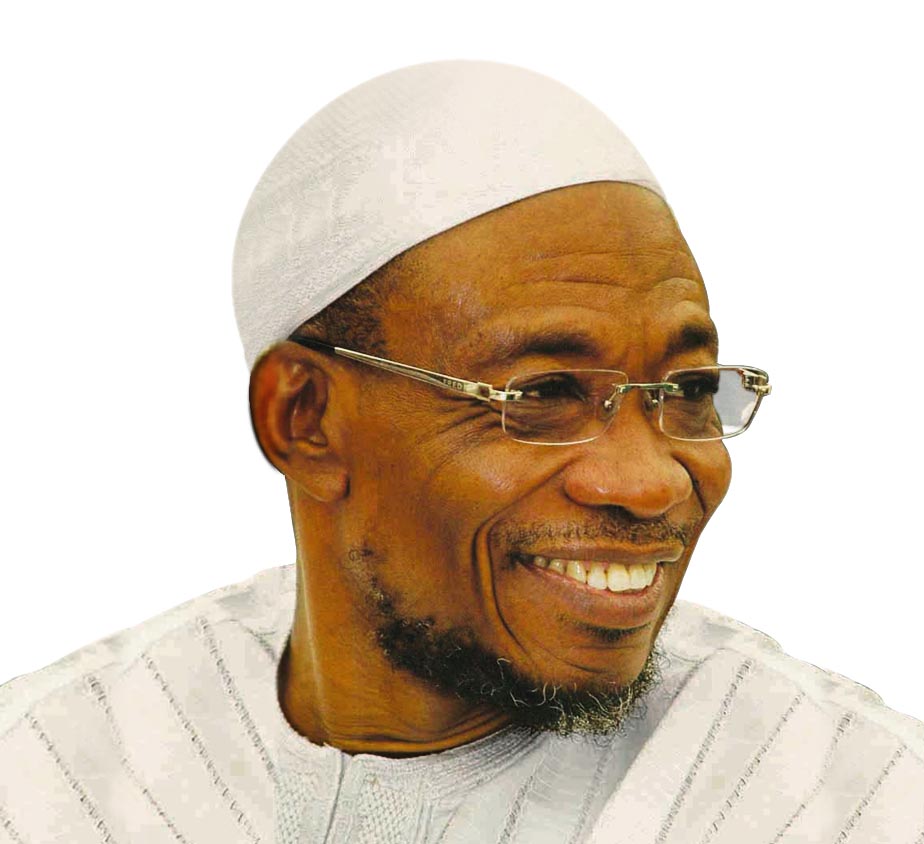
In The Case Of Aregbesola Versus All

“You are now old enough to fend for yourself son, I can no longer give you pocket money as I used to.” When this statement is uttered by a father to his son; while it may not make some sons flinch, it hits other sons faster and harder than Floyd Mayweather. In many cases, this is taken for granted with the underlying belief that father won’t watch them wallow in abject poverty when he can help, which is valid. It is however, a different case when father cannot help anymore, as he has been sacked or because the product he sells is now surplus in supply, and thus of little selling price, as is the case with Nigeria and her oil. In this case, while children of Nigeria (states) who had a previous means of livelihood will take it in their stride, others with little or no other source of income will be badly hit and have a mountain to climb. The State of Osun, in the south-west of Nigeria, is an apt example of the latter class of sons, and so far, it is climbing the mountain with all vigour and energy that could possibly be mustered.
That is not the summary you are likely to hear however. In a polity membered by an opposition desperately seeking to deplete the goodwill earned by the government of Ogbeni, and in effect the APC, it is not surprising that campaigns have continuously been mounted against the adverse effects without giving thought to the root causes.
The State of Osun earns the lowest from the federation account, with the monthly allocation for the state plunging into less than a hundred millions late last year, after deductions at source mostly to debt servicing. As it stands, in a state with relatively less a population, the civil service is so bloated that total revenue earnings for a month do not satisfy the recurrent spending requirements. In states generating even less internal revenue like Ekiti, the balance of trade is not as threatened because the salaries and overhead costs are less even when some of those states are more populated, which is a misnomer.
So while the state has been thrown into crisis, what is surprising is the defiance of the governor to abandon governance for crisis management. While it will have been an easy choice for politicians in his shoes, in his second term already, to simply dedicate tight resources available to payment of salaries and little or no more, as it is the only thing critics(many of whom, are not in the state) are concerned about. However, common sense is that a government house cannot be reduced to a bursar’s office, not minding how crude it sounds.
The government of Osun under Aregbesola has been one of firsts up until crisis period, with policies like feeding of school children, youth employment, and the famous Opon-Imo, being adopted and acknowledged far and wide. He achieved all these, vis-à-vis infrastructure development at all levels. Impressive, but with the fall of oil price, and the depleted “pocket money” from father, one would have expected all these to end. But No!
It has certainly been more difficult but in recent times, after managing to reach an agreement with labour on the salary structure, the state has been scoring other firsts. In exploring means of sourcing funds, the state became first to employ the Sukuk bond which was of over 11 billion, all in a bid to make sure efforts in the education sector were not stemmed. This has ensured that upgrade of schools has continued around the state with no sign of slowing down.
Asides that, the state has also declared plans to establish a Commodity Board directly under the governor, with a daring plan to produce cocoa of unprecedented quality and quantity. The governor said it will be branded Cocoa Omoluabi, and that tens of millions of cocoa trees had already been identified. The state has also now declared a partnership with The International Institute of Tropical Agriculture (IITA) where it supplies an incredible expanse of land for experimental agriculture by the reputable institute. The governor in a show of determination, also said state executive council meetings will be held in high producing areas. Many of the workers in the agricultural sector are already being deployed from office to farm in what is a clear departure from the status quo. The plans have been drawn out and time-framed and while they look exciting, one hopes the results will be even more cheering. If they turn out so, the state of Osun even under financial strains will have provided yet another example for states to follow.
In many other states earning just above Osun, such level of planning has appeared elusive, with salary-paying being the focus seeing as the public has been led by many to believe governance is a factor of who pays salaries. Asides salaries, many states have governors dedicated to petty issues like eating at public restaurants. Smart citizens must begin to ask in the view of tight purses, if salary paying alone can sustain a state. The governor of Osun has been vilified in many quarters but I see a man who will rather be vilified than let his state be sacrificed.
It is encouraging however that people are so concentrated on the state of affairs in the state of Osun because this can only lead to deeper government-people engagement but what is important is that while many people keep an eye on salaries in the state, they make sure to keep the other eye on developments being pushed by the government amidst the financial crisis so that while looking to teach the government how to run the state, we do not fail to learn from a government that has continued to give us examples to learn from.
Gbolahan Yusuf
Gbolly1992@gmail.com



